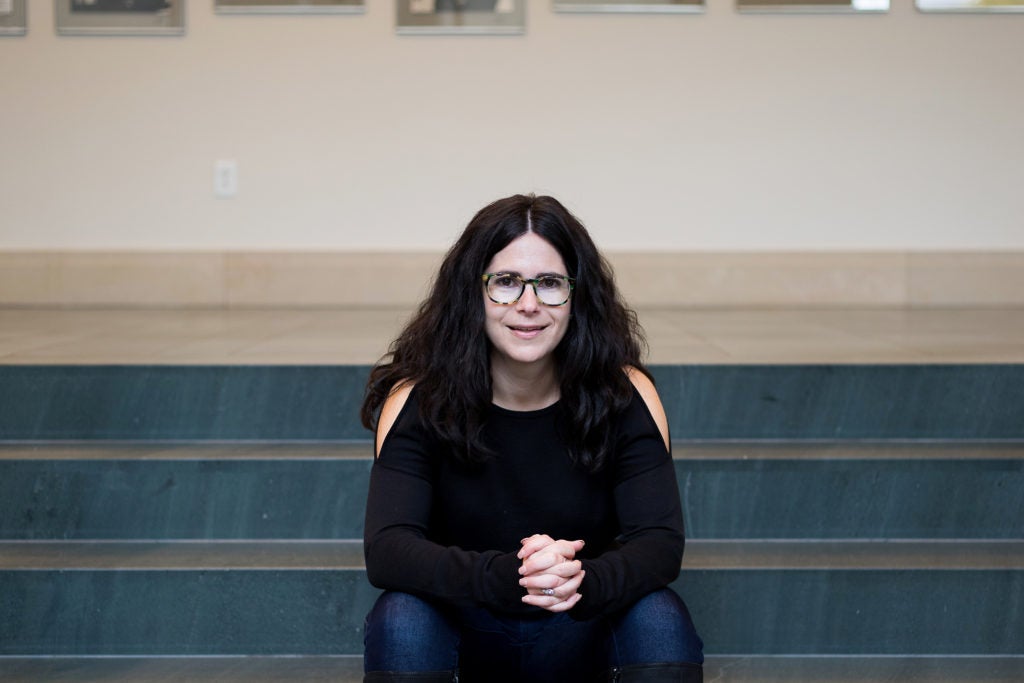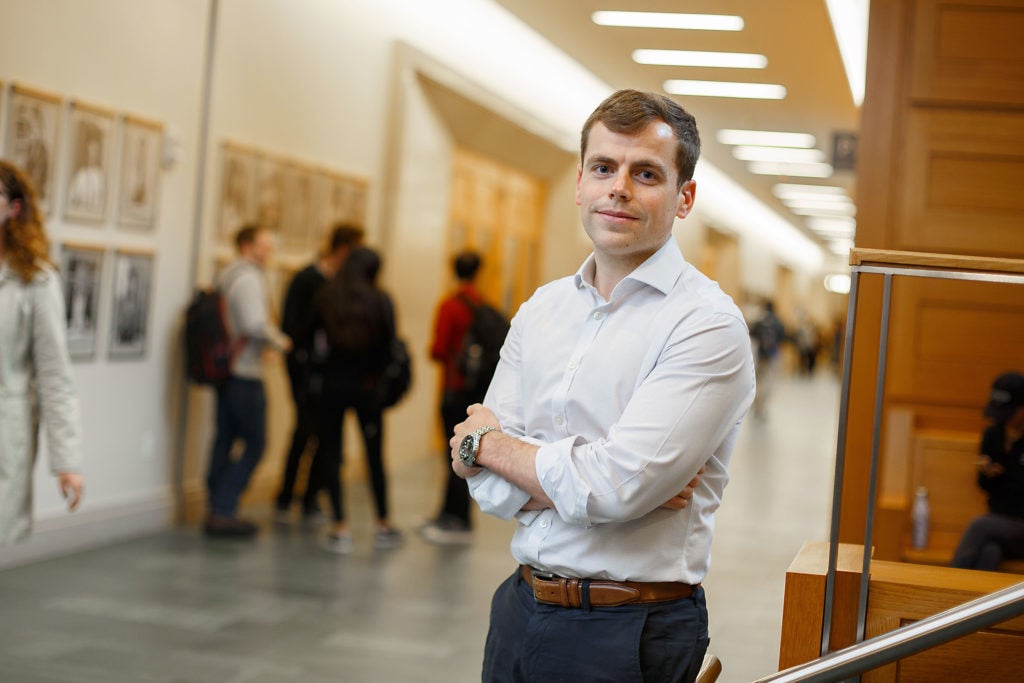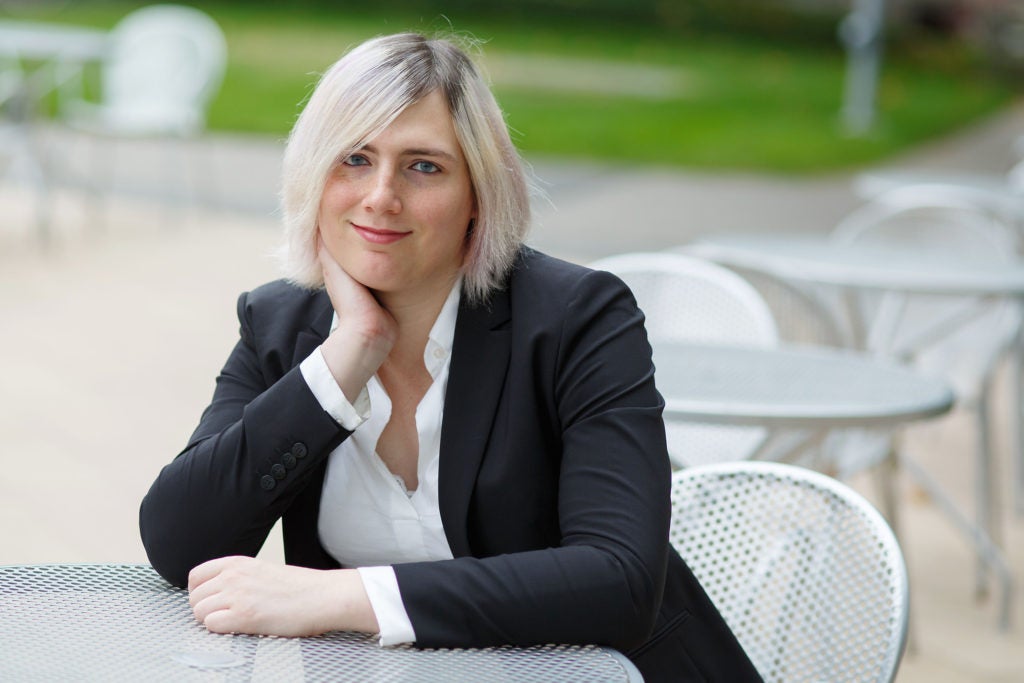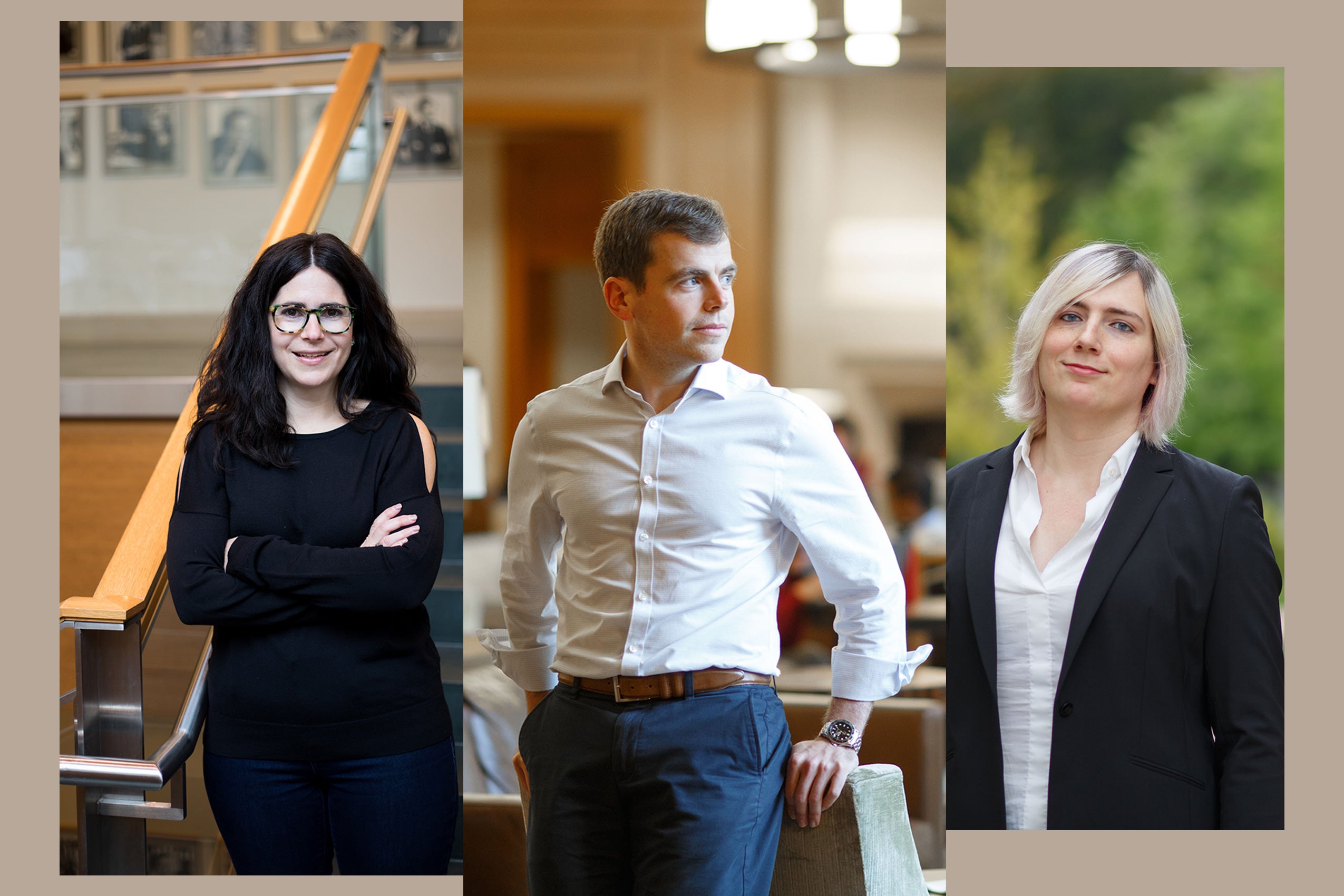The service and unique perspective of the veterans currently enrolled at Harvard Law School enrich the entire HLS community, elevating awareness about the legal and policy issues affecting veterans and the significance of law in contemporary warfare; three military veterans in this year’s entering class shared their experiences in the military and at HLS.
Lieutenant Commander Sara Plesser Neugroschel LL.M. ’19, U.S. Navy
“Part of my wanting to serve was a drive to ensure that the tyranny and persecution that my grandfather and millions of others faced—both then and now—never happens again.”

With no other members of the military in the extended family, the parents of U.S. Navy Lieutenant Commander Sara Plesser Neugroschel LL.M. ’19 were “very, very surprised” when she decided to commission in the Navy after her 2L year at the University of Miami Law School, from which she graduated in 2009. But Neugroschel felt a particularly personal reason for serving her country: Her grandfather was a holocaust survivor.
“Part of my wanting to serve was a drive to ensure that the tyranny and persecution that he and millions of others faced—both then and now—never happens again,” says Neugroschel, a counter-terrorism expert who is spending her year at HLS focusing on national security law and international relations. While that goal may be “an unrealistic expectation,” she says that it is “important nonetheless, and it’s worth it if there is even a small chance that my actions and the actions of my fellow service members can prevent injustice, tyranny, and terrorism in the future.”
U.S. Army Ranger Stephen Petraeus ’21
“I felt I should do my part because all of my relatives had served in the military, and felt I had been given a lot by the U.S. and felt I should contribute or serve.”

Stephen Petraeus J.D./M.B.A. ’21 chose MIT for his undergraduate studies because he wanted to explore a different world from the military life in which he had grown up. But as a sophomore, Petraeus felt a longing for that world and joined ROTC. He would go on to spend eight years in the U.S. Army, deploying two times to Afghanistan including with the storied 173rd Airborne Brigade Combat Team.
“I felt I should do my part because all of my relatives had served in the military, and felt I had been given a lot by the U.S. and felt I should contribute or serve,” says Petraeus, whose father is retired four-star Army Gen. David H. Petraeus, former director of the Central Intelligence Agency and now a senior fellow at Harvard Kennedy School’s Belfer Center for Science and International Affairs.
Today, as a student in a joint program at HLS and HBS, Petraeus plans to continue in public service in some way. “I’m excited about the enthusiasm among my classmates to serve in some way” including the many who want to serve as government lawyers, he says. “It reminds me of the military, with people excited about serving something greater than themselves or being part of a mission they want to contribute to.”
U.S. Naval Reactors Engineer Eve Howe ’21
“I wanted to do something to help people … I’d always imagined using whatever degree or knowledge I had to help people in some way.”

Eve L. Howe ’21 is an expert in nuclear submarines–specifically, the fluid systems that cool the nuclear reactors in military submarines. Drawn to military service because she wanted to use her engineering skills for public service, Howe spent five years as an officer in the U.S. Navy, where she solved complex technical problems to ensure the submarines would be able to accomplish their missions.
“I’d always imagined using whatever degree or knowledge I had to help people in some way,” says Howe, who grew up in Montpelier, Virginia. After graduating from Virginia Commonwealth University with degrees in both physics and mechanical engineering, Howe was admitted into the Navy’s Nuclear Propulsion Officer Candidate Program, and then completed Officer Development School in Newport, Rhode Island. After a series of advanced nuclear training programs, including in Idaho, where she studied how the Navy handles spent nuclear fuel, Howe worked in Washington, D.C. with Naval Reactors, where she focused on fluid systems in military submarines.
It was in the spring of 2017, just before her stint with the Navy was ending, that Howe decided to go to law school. “I wanted to do something to help people and didn’t feel there were many opportunities to do that as an engineer, at least not in a paid sense,” says Howe, who was inspired by the lawyers who rushed to airports around the U.S. to assist people from certain Muslim countries whom President Trump banned from entering the U.S.
